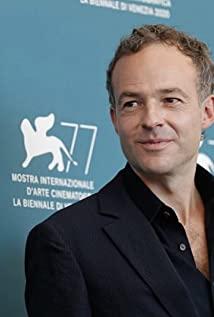Whether this film is a biography faithful to Tolstoy's life, I have not checked. But that's not important to the subject.
Human love is too complicated to articulate.
There are three characters entangled in the movie
"Saints" living in ideals - Tolstoy
A wife who tries her best to maintain a worldly life - Sophia
Fanatical believer and disciple of the "Saint" - Vladimir Chekov
Tolstoy loved his wife, no doubt about it. At the same time Tolstoy loved his ideals, no doubt about it. He often feels deeply guilty and uneasy about his wealthy "privilege" for his own ideals. He wants to give up his wealthy material life and the copyright of his works, that is, to give up "luxury and superfluous" material enjoyment to live a simple life. Tolstoy was often full of anger and dissatisfaction with his wife and daughter's craving for "material pleasures", and in their view, Tolstoy's unrealistic ideal life attitude was irresponsible, and he was irresponsible to his disciples and children. The fanatic Vladimir Chekov is regarded as a thief and abettor, and in Chekov's eyes, the countess and her daughter are demons.
Tolstoy's ideal of transcendental life satisfies his spiritual world but endangers the lives of his wife and his children in the "worldly" world. The wife hopes that her husband can occasionally come to the mortal world from the otherworldly world to take a look. One million The ruble is not a small amount, but was rejected by her husband "I don't write books for the booksellers, I only write books for the people", while the fanatical disciple Chekov strives to mold his teacher into a "saint" in his heart and fight against "Demon" Sophia.
Compromise is essential if two people want to live together stably. When we love someone and want to stand up for ourselves, quarrels are essential, and separation is inevitable. It is difficult to define the praise and criticism of self-adherence. Many great writers, philosophers and other scholars have never married or ended up divorced all their lives. Perhaps the reason is because they are very insistent and unwilling to give up. Everyone has their own aspirations, and there is no difference between marriage and non-marriage.
While each of us loves others deeply, we become a kidnapping of others and trample on others’ self if we don’t pay attention. Our love is usually subconsciously hoping to reciprocate. It can be material, emotional, or even a desire to shape a spiritual idol.
Only Valentine's love for Tolstoy was the purest. At first, he worshipped him like a god. Hearing that the great Tolstoy had read his prose, he was moved to tears and his forehead burst into blue veins. Later, I gradually discovered that Tolstoy had a mortal side and also had six emotions. He did not make his teacher an idol to worship like the fanatic Chekov, but Valentine did not. He just admired Tolstoy's original appearance. , you are God or mortal or I respect you very much, I respect you as you are, not as a saint.
And another admirer, Martha, realized the true meaning in the exploration. The true meaning of Tolstoy does not require you to be simple in form. It does not require you to live in the suburbs and live a simple life. It is just an escape and self-spiritual intention. Kinky satisfaction. Rather, it requires you to truly go deep into your life, go deep into the crowd, to understand and discover human nature and desires. So she chose to go to Moscow. The ancients said: "The great seclusion is hidden in the city." Those who truly attain the Tao do not deliberately pursue formal peace, but obtain inner peace, whether in a noisy city or a quiet village. This is probably why Tolstoy's perennial plan to run away from home.
Perhaps unrequited love, unmixed with personal control, is harmless.
View more about The Last Station reviews










